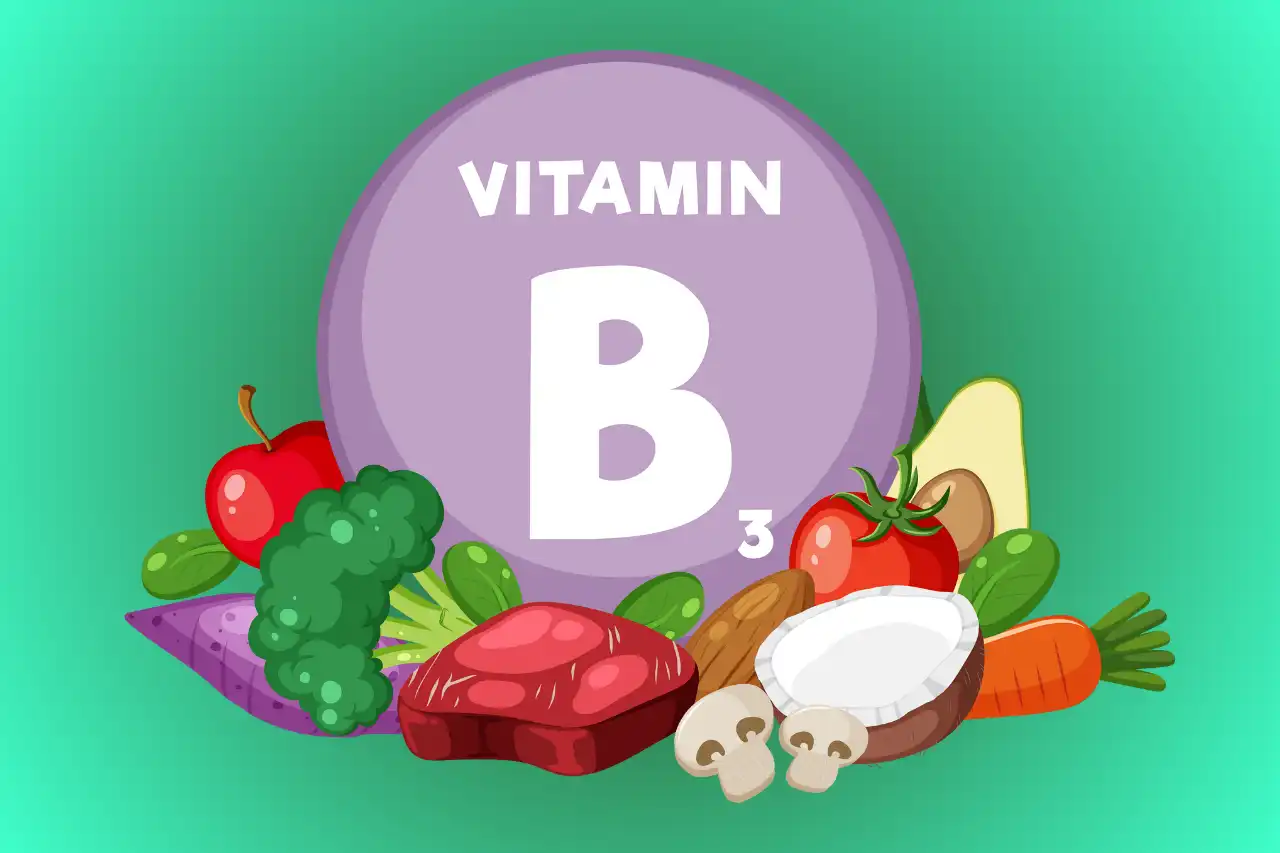-: VITAMIN – B6 :-
Vitamin B6 – The “Brain-Boosting Vitamin” for Mind & Body…!!!
Feeling mentally foggy or low on energy? Vitamin B6, also known as Pyridoxine, is often called the “Brain-Boosting Vitamin” for its crucial role in brain function, mood regulation, and energy metabolism.
Daily Requirements
Your body doesn’t store Vitamin B6, so you need a steady daily intake:-
Men
- Teens (9-18 years) – (1.0-1.3 mg) per day
- Men 18+ years – (1.3-1.7 mg) per day
Women
- Women – (1.3-1.5 mg) per day
- Pregnant women – 1.9 mg per day
- Breastfeeding Mother – 2.0 mg per day
Children
- Infants (0-6 months) :- 0.1 mg per day
- Children (1-8 years) :- (0.5-0.6 mg) per day
Function on different Organ
- Brain & Nervous System
Details
Vitamin B6 helps to produce neurotransmitters like serotonin and dopamine, hence improving your mood, memory, and overall focus level.
- Immune System
Details
It also strengthens your immunity level by supporting white blood cell production.
- Heart Health
Details
This vitamin regulates homocysteine levels, and reduces the risk of your heart disease.
- Blood Production
Details
Vitamin B6 assists in the formation of your hemoglobin,thus its support in preventing anemia.
- Metabolism & Energy
Details
It also converts your carbohydrates, proteins, and fats into energy, and helps in keeping you active always.
- Hormonal Balance
Details
Vitamin B6 helps in Alleviating your PMS (Premenstrual syndrome) symptoms and supports overall adrenal function.
Symptoms incase of Deficiency
- Mood Changes & Irritability – Increased anxiety, depression, or brain fog.
- Fatigue & Weakness – Low energy levels and sluggishness.
- Cracked Lips & Skin Issues – Dry, flaky skin,rashes ,intertrigo,and mouth sores.
- Tingling & Numbness – Nerve problems in hands and feet.
- Microcytic anemia-It is caused due to impaired heme synthesis leading to dizziness and paleness.
- Weakened Immunity – Frequent colds and infections.
- Conjunctivitis.
Diagnosis
- Vitamin B6 (Pyridoxal 5′-Phosphate, PLP) Blood Test
Details
This test measures the active form of Vitamin B6 in the blood. If you are ordering the test at a lab, you can ask for “Vitamin B6, Plasma” or “Pyridoxal 5′-Phosphate (PLP) Test.”
Food Sources
Veg Sources
- Whole grains
- Brown rice.
- Oats.
- Whole wheat bread.
- Quinoa.
- Millet.
- Legumes
- Lentils.
- Chickpeas.
- Soybeans.
- Vegetables
- Spinach.
- Potatoes.
- Onion.
- Carrots.
- Squash.
- Red Bell pepper.
- Spinach.
- Nuts & seeds
- Sunflower seeds.
- Pistachio.
- Walnuts.
- Flaxseeds.
- Raisins.
- Peanuts.
- Fruits
- Avocados.
- Bananas.
- Oranges.
- Watermelon.
- Others
- Tofu.
Non-Veg Sources
- Lean meats
- Chicken.
- Turkey.
- Pork.
- Fish
- Salmon.
- Tuna.
- Mackerel.
- Organ meats
- Liver.
- Kidney.
- Dairy products
- Yogurt.
- Milk.
- Cheese.
- Others
- Eggs.
What if Overconsumption
While food sources are safe, excessive intake from supplements (above 100 mg/day) can cause:-
- Nerve damage – Tingling, numbness, or loss of coordination.
- Sensitivity to sunlight – Increased risk of skin rashes.
- Digestive issues – Nausea and stomach pain.
- Decreased sensitivity to pain or extreme temperatures.
- Loss of muscle coordination or difficulty controlling voluntary movements (ataxia).
Vitamin B6 is your ultimate brain and energy booster, helping you stay mentally sharp, emotionally balanced, and physically strong. Since your body doesn’t store it, a daily intake through food is essential. A diet rich in B6 ensures better mood, stronger immunity, and improved heart health...!!!












